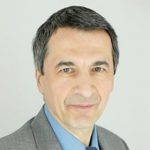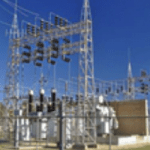Quantum News Briefs July 28: D-Wave announces collaborations with Institute for Quantum Computing at UofWaterloo to advance quantum coherence;

Quantum News Briefs July 28:
D-Wave announces collaborations with Institute for Quantum Computing at UofWaterloo to advance quantum coherence
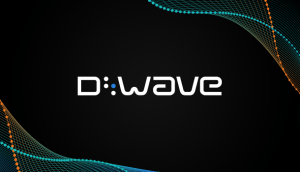
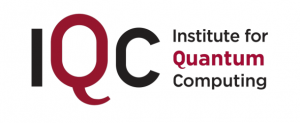
D-Wave Quantum Inc. announced July 2 two new collaborations with the Institute for Quantum Computing (IQC) at the University of Waterloo. These collaborations establish key hardware research programs for quantum computing systems. Quantum News Briefs summarizes.
The two multi-year projects between D-Wave and the researchers were funded through the Natural Sciences and Engineering Research Council of Canada (NSERC) Quantum Alliance program, which is part of Canada’s National Quantum Strategy. These projects will focus on identifying improvements in device design and materials quality that support increasingly coherent superconducting quantum processors.
“The collaboration with D-Wave will provide a unique opportunity to explore fundamental aspects of the physics of a new generation of superconducting qubits, which have the potential to enable new quantum computing architectures,” said Dr. Adrian Lupascu, professor at the Institute for Quantum Computing and Department of Physics and Astronomy at the University of Waterloo.
“I would like to thank NSERC for the opportunity to collaborate with D-Wave. These funds provide essential support for my research team to work with D-Wave on developing improved superconducting components for quantum computing and quantum devices. In addition, the collaboration will contribute to building up Canada’s quantum-ready workforce, as my team gains valuable experience in the fast-growing cryogenic and quantum computing sector,” said Dr. Jan Kycia, Physics and Astronomy professor at the University of Waterloo and Institute for Quantum Computing affiliate. Click here to read complete announcement on D-Wave’s website.
DOE announces $11.7M for research on quantum computing
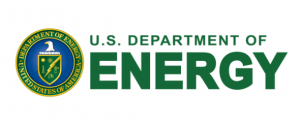 The U.S. Department of Energy (DOE) announced $11.7 million in funding on July 27 for six collaborative projects to improve our understanding of whether, when, and how quantum computing might advance the frontiers of computational science.
The U.S. Department of Energy (DOE) announced $11.7 million in funding on July 27 for six collaborative projects to improve our understanding of whether, when, and how quantum computing might advance the frontiers of computational science.
Projects explore the limitations of the noisy, intermediate-scale quantum processors available today and aim to develop tools for assessing whether a particular quantum processor may be able to advance the frontiers of computational science even in the absence of formal error correction on the device.
The projects were selected by competitive peer review under the DOE Funding Opportunity Announcement “Quantum Testbed Pathfinder.”
Total funding is $12 million for projects lasting up to four years in duration, with $4.8 million in Fiscal Year 2023 dollars and outyear funding contingent on congressional appropriations. The list of projects and more information can be found on the ASCR program website. Click here to read announcement in-entirety.
UChicago scientists make new discovery proving entanglement responsible for computational hardness in quantum systems
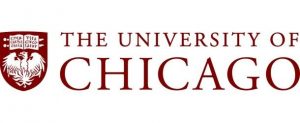 A team of scientists led by Assistant Professor William Fefferman from the University of Chicago’s Department of Computer Science have found a computational problem in which entanglement is directly responsible for a dramatic quantum computational speedup over any efficient classical algorithm. Quantum News Briefs summarizes their
A team of scientists led by Assistant Professor William Fefferman from the University of Chicago’s Department of Computer Science have found a computational problem in which entanglement is directly responsible for a dramatic quantum computational speedup over any efficient classical algorithm. Quantum News Briefs summarizes their
Fefferman, along with lead Ph.D. student Soumik Ghosh, IBM researcher Abhinav Deshpande (who Fefferman co-advised at the University of Maryland), University of Maryland postdoc Dominik Hangleiter and University of Maryland/NIST researcher Alexey Gorshkov, debuted a problem in their paper titled “Complexity phase transitions generated by entanglement” that pinpoints two things: there is a provable quantum speedup over any classical computer, and entanglement is causing the speedup in this particular problem.
Since the early 90’s, we have had theoretical evidence that quantum computers can solve problems that are too difficult for today’s classical computers. One specific example that scientists continue to look at is Shor’s algorithm, which says quantum computers can take incredibly large numbers (think ten billion) and quickly break them into their prime factors. The foundations of modern cryptography that we use on the Internet is based on this being a hard problem to solve; so if large scale quantum computers are built, then the basis of cryptography as we know it would be compromised.
However, Shor’s algorithm is still a theoretical result because large enough and perfect enough quantum computers have not yet been built. “Right now we are in the era of NISQ — which stands for noisy intermediate scale quantum computing,” said Ghosh. “Some companies have designed certain types of quantum computers, but one defining feature is that they are a bit noisy. Today’s quantum computers are believed to be just slightly more powerful than our best classical computers, so it’s becoming more significant to sharpen that boundary between the two.” Click here to read complete article on UofChicago website.
A quantum radar that outperforms classical radar by 20%
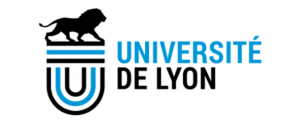 A research team at Ecole Normale Supérieure de Lyon, CNRS recently developed a quantum radar that could significantly outperform all existing radars based on classical approaches. This new radar, introduced in a paper published in Nature Physics, concurrently measures an entangled probe and the idler microwave photon states occurring once this probe reflects from target objects, merging with thermal noise.
A research team at Ecole Normale Supérieure de Lyon, CNRS recently developed a quantum radar that could significantly outperform all existing radars based on classical approaches. This new radar, introduced in a paper published in Nature Physics, concurrently measures an entangled probe and the idler microwave photon states occurring once this probe reflects from target objects, merging with thermal noise.
Several past studies tried to develop quantum radars that outperformed conventional radars. This quantum advantage was eventually realized using optical systems, yet before this study it was not yet achieved using microwave radiation.
Huard and his colleagues are thus the first who developed a microwave-based quantum radar that performs significantly better than any classical radar technology reported to date. Their radar works by exploiting correlations imprinted between two microwave radiations beyond the bounds of classical physics theories.
Past research showed that quantum correlations can make radar detection up to four times faster in scenarios with comparable signal power and target noise. In initial evaluations, the microwave quantum radar developed by the researchers sped up radar detection by 20% compared to classical radars. Click here to read the original article in Phys.org in-entirety.
Sandra K. Helsel, Ph.D. has been researching and reporting on frontier technologies since 1990. She has her Ph.D. from the University of Arizona.






















